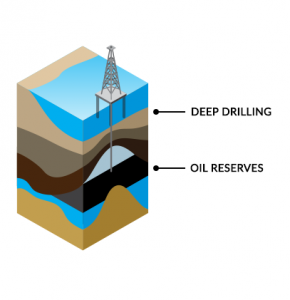All Categories
Featured
Table of Contents
Geophysicist Job Description in Wexcombe WA 2021
The main model for the radial structure of the interior of the Earth is the initial reference Earth model (PREM). Some parts of this model have actually been upgraded by recent findings in mineral physics (see post-perovskite) and supplemented by seismic tomography. The mantle is primarily composed of silicates, and the borders between layers of the mantle follow stage shifts.

This makes plate tectonics possible. Schematic of Earth's magnetosphere. The solar wind circulations from left to right. If a planet's electromagnetic field is strong enough, its interaction with the solar wind forms a magnetosphere. Early area probes mapped out the gross measurements of the Earth's magnetic field, which extends about 10 Earth radii towards the Sun.
Inside the magnetosphere, there are reasonably dense regions of solar wind particles called the Van Allen radiation belts. Geophysical measurements are typically at a particular time and location. Precise measurements of position, together with earth contortion and gravity, are the province of geodesy. While geodesy and geophysics are different fields, the 2 are so carefully linked that lots of clinical companies such as the American Geophysical Union, the Canadian Geophysical Union and the International Union of Geodesy and Geophysics incorporate both.
Career Guide: Geophysicist in Roleystone Western Australia 2021
A three-dimensional position is determined using messages from four or more visible satellites and referred to the 1980 Geodetic Recommendation System. An option, optical astronomy, integrates huge collaborates and the local gravity vector to get geodetic coordinates. This approach just supplies the position in two coordinates and is harder to utilize than GPS.
Relative positions of 2 or more points can be determined using very-long-baseline interferometry. Gravity measurements entered into geodesy because they were needed to related measurements at the surface of the Earth to the referral coordinate system. Gravity measurements on land can be made using gravimeters deployed either on the surface or in helicopter flyovers.
Water level can also be determined by satellites utilizing radar altimetry, contributing to a more accurate geoid. In 2002, NASA released the Gravity Recovery and Environment Experiment (GRACE), in which two twin satellites map variations in Earth's gravity field by making measurements of the range between the 2 satellites using GPS and a microwave varying system. , which are studied through geophysics and space physics.
Uses For Geophysical Data in Ascot Aus 2021

Since geophysics is worried about the shape of the Earth, and by extension the mapping of functions around and in the planet, geophysical measurements include high precision GPS measurements. These measurements are processed to increase their accuracy through differential GPS processing. Once the geophysical measurements have been processed and inverted, the analyzed outcomes are plotted using GIS.
Lots of geophysics business have actually developed internal geophysics programs that pre-date Arc, GIS and Geo, Soft in order to satisfy the visualization requirements of a geophysical dataset. Expedition geophysics is applied geophysics that frequently utilizes remote sensing platforms such as; satellites, aircraft, ships, boats, rovers, drones, borehole noticing equipment, and seismic receivers.
Aeromagnetic data (aircraft gathered magnetic data) collected using conventional fixed-wing airplane platforms need to be remedied for electro-magnetic eddy currents that are created as the aircraft moves through Earth's electromagnetic field. There are also corrections related to modifications in measured prospective field strength as the Earth rotates, as the Earth orbits the Sun, and as the moon orbits the Earth.
An Assessment Of Geophysical Survey Techniques For ... in Boya WA 2022
Signal processing involves the correction of time-series data for undesirable noise or mistakes presented by the measurement platform, such as airplane vibrations in gravity information. It also includes the reduction of sources of sound, such as diurnal corrections in magnetic information., meteorology, and physics.
The magnetic compass existed in China back as far as the fourth century BC. It was not up until excellent steel needles could be forged that compasses were used for navigation at sea; prior to that, they might not maintain their magnetism long enough to be helpful.
By taking a look at which of 8 toads had the ball, one could figure out the direction of the earthquake. It was 1571 years prior to the very first style for a seismoscope was released in Europe, by Jean de la Hautefeuille. It was never ever built. One of the publications that marked the beginning of contemporary science was William Gilbert's (1600 ), a report of a series of meticulous experiments in magnetism.
Geophysical Surveys in Osborne Park Aus 2023
Dietmar; Sdrolias, Maria; Gaina, Carmen; Roest, Walter R. (April 2008). "Age, spreading out rates, and spreading out asymmetry of the world's ocean crust". Geochemistry, Geophysics, Geosystems. 9 (4 ): Q04006. Bibcode:2008 GGG ... 9. 4006M. doi:10. 1029/2007GC001743. S2CID 15960331. "Earth's Inconstant Electromagnetic field". science@nasa. National Aeronautics and Space Administration. 29 December 2003. Recovered 13 November 2018.
Runcorn, S.K, (editor-in-chief), 1967, International dictionary of geophysics:. Pergamon, Oxford, 2 volumes, 1,728 pp., 730 fig Geophysics, 1970, Encyclopaedia Britannica, Vol. Introduction to seismology (Second ed.).
Latest Posts
Geophysical Exploration in Hocking Australia 2022
5 Surface Geophysics in Sorrento WA 2021
Consumer Guide To Geological And Geophysical Services ... in Safety Bay Western Australia 2020